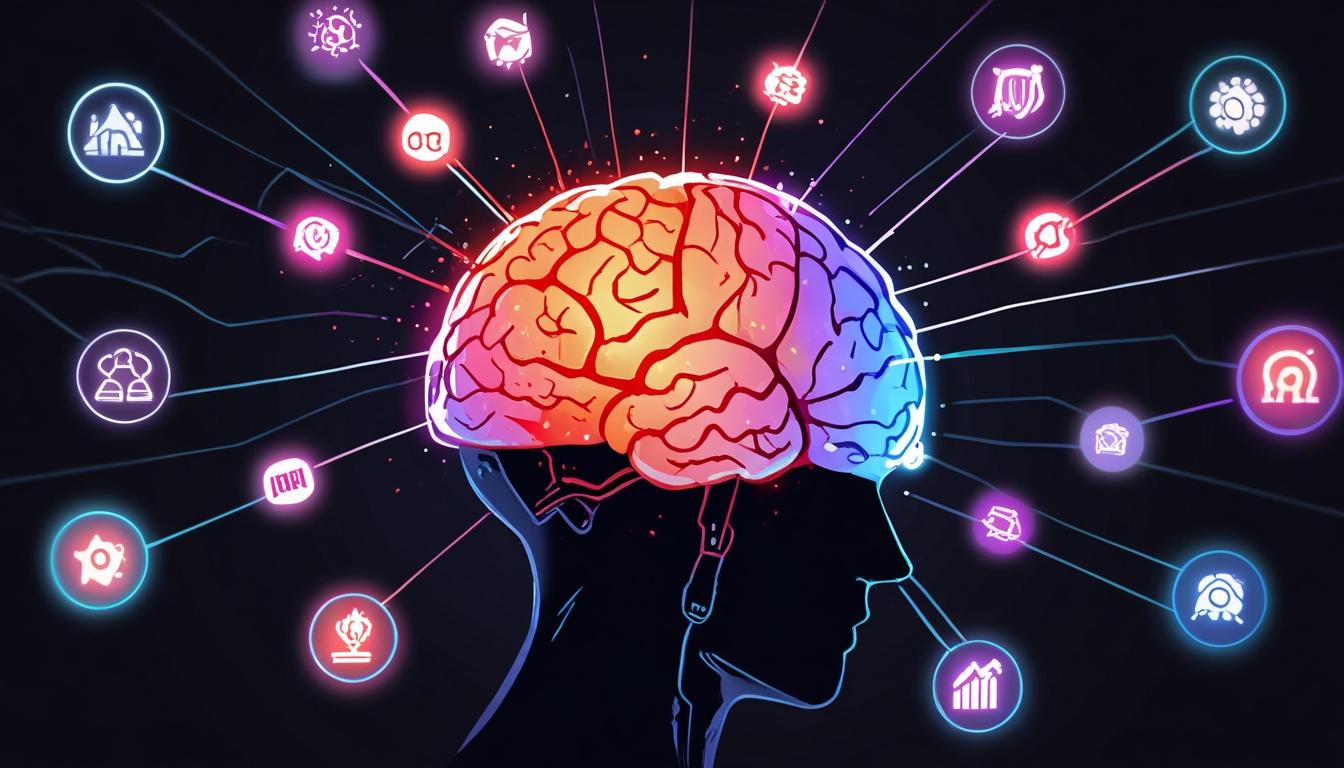Growing dependence on artificial intelligence tools is linked to falling IQ scores and diminished critical thinking abilities, raising concerns among experts about the long-term effects on human cognition.
Concerns are mounting among experts about the impact of artificial intelligence (AI) on human intelligence, with some suggesting that increasing reliance on AI tools is leading to a decline in cognitive abilities. As AI systems take on more tasks—from driving cars and answering questions to creating content independently—there are growing fears that human thinking skills and problem-solving capacities are being compromised.
Psychologists point to a reversal of the Flynn Effect, a phenomenon identified by the late Professor James Flynn, which showed that successive generations had historically scored higher on IQ tests than previous ones. However, recent research indicates that over the past three decades—coinciding with the global rise of the internet and digital technologies—IQ scores have been falling steadily, now reaching levels not seen since studies began in 1949.
According to these studies, the more people depend on AI, the more there is a noticeable drop in IQ scores, alongside a decline in critical thinking abilities and reduced attention spans. Experts compare this trend to muscle deterioration from lack of physical exercise, arguing that mental faculties weaken when the brain is not regularly challenged.
Psychologist Robert Sternberg from Cornell University expressed concerns over the relationship between generative AI and human intellect, telling the Daily Star: "The greatest worry in these times of generative AI is not that it may compromise human creativity or intelligence, but that it already has."
Further research conducted by Michael Gerlich of SBS Swiss Business School in Kloten, Switzerland, involved testing 666 British participants and found a significant link between frequent AI use and diminished critical-thinking skills. Gerlich highlighted the influence of social media on this decline, noting, "The impact of social media on critical thinking is enormous. To get your video seen, you have four seconds to capture someone’s attention. The result? A flood of bite-size messages that are easily digested but don’t encourage critical thinking." He added, "It is very challenging not to offload your critical thinking to these machines."
Adding to the concerns, Sir Demis Hassabis, Nobel Prize-winning chief executive and co-founder of Google DeepMind, suggested that humans could become 'obsolete' within the next decade due to the rapid advancements in AI.
As AI technology continues to evolve and integrate further into daily life, these findings emphasise the need to closely monitor its influence on human cognition and society.
Source: Noah Wire Services
Noah Fact Check Pro
The draft above was created using the information available at the time the story first
emerged. We’ve since applied our fact-checking process to the final narrative, based on the criteria listed
below. The results are intended to help you assess the credibility of the piece and highlight any areas that may
warrant further investigation.
Freshness check
Score:
8
Notes:
The narrative discusses ongoing concerns about AI's effect on human cognition with references to recent research and contemporary figures. The mention of Sir Demis Hassabis as Google DeepMind CEO is current as of 2025. The Flynn Effect reversal discussion remains relevant and recent studies about IQ decline coincide with the rise of digital technologies. There is no clear sign that the content is recycled or outdated, nor is it a press release, which would usually warrant a high freshness rating due to direct, timely announcements.
Quotes check
Score:
7
Notes:
Quotes from Robert Sternberg and Michael Gerlich are cited without direct original dates or sources found online. Sternberg's concern about generative AI is a plausible recent statement but earliest online reference is not identified. Gerlich's research and quotes regarding social media influence on critical thinking lack a clear first-publication source, suggesting these may be original exclusive quotes or not widely published yet. The quote attributed to Sir Demis Hassabis about humans becoming obsolete is unverified as a direct public statement and there is confusion over him being a 'Nobel Prize-winning' figure, which is factually inaccurate.
Source reliability
Score:
5
Notes:
The Daily Star, the narrative's origin, is a tabloid UK outlet known for sensationalism and less rigorous editorial standards compared to major reputable media such as BBC or Reuters. This reduces overall reliability despite discussing expert opinions. The mixed quality and occasional inaccuracies in titles (e.g., Demis Hassabis incorrectly called Nobel laureate) further lower trustworthiness. Caution is warranted in accepting claims without independent verification.
Plausibility check
Score:
7
Notes:
The narrative's claims about AI impacting human intelligence, critical thinking decline, and the Flynn Effect reversal align with some emerging academic discussions, though these remain complex and debated topics. The association of social media bite-size content with reduced attention spans and thinking is plausible and widely acknowledged. However, the assertion that reliance on AI directly causes measurable IQ decline lacks conclusive evidence and is difficult to verify fully. The prediction about obsolescence within a decade is speculative and not universally accepted.
Overall assessment
Verdict (FAIL, OPEN, PASS): OPEN
Confidence (LOW, MEDIUM, HIGH): MEDIUM
Summary:
The narrative raises contemporary and plausible concerns about AI's cognitive impact, supported by some expert commentary, but is sourced from a tabloid outlet with occasional inaccuracies and lacks fully verifiable quotes. While the freshness and plausibility are reasonably strong, reliability issues and unverifiable or misattributed quotes moderate confidence. Further independent verification of claims and quotes is needed before a firm conclusion.
